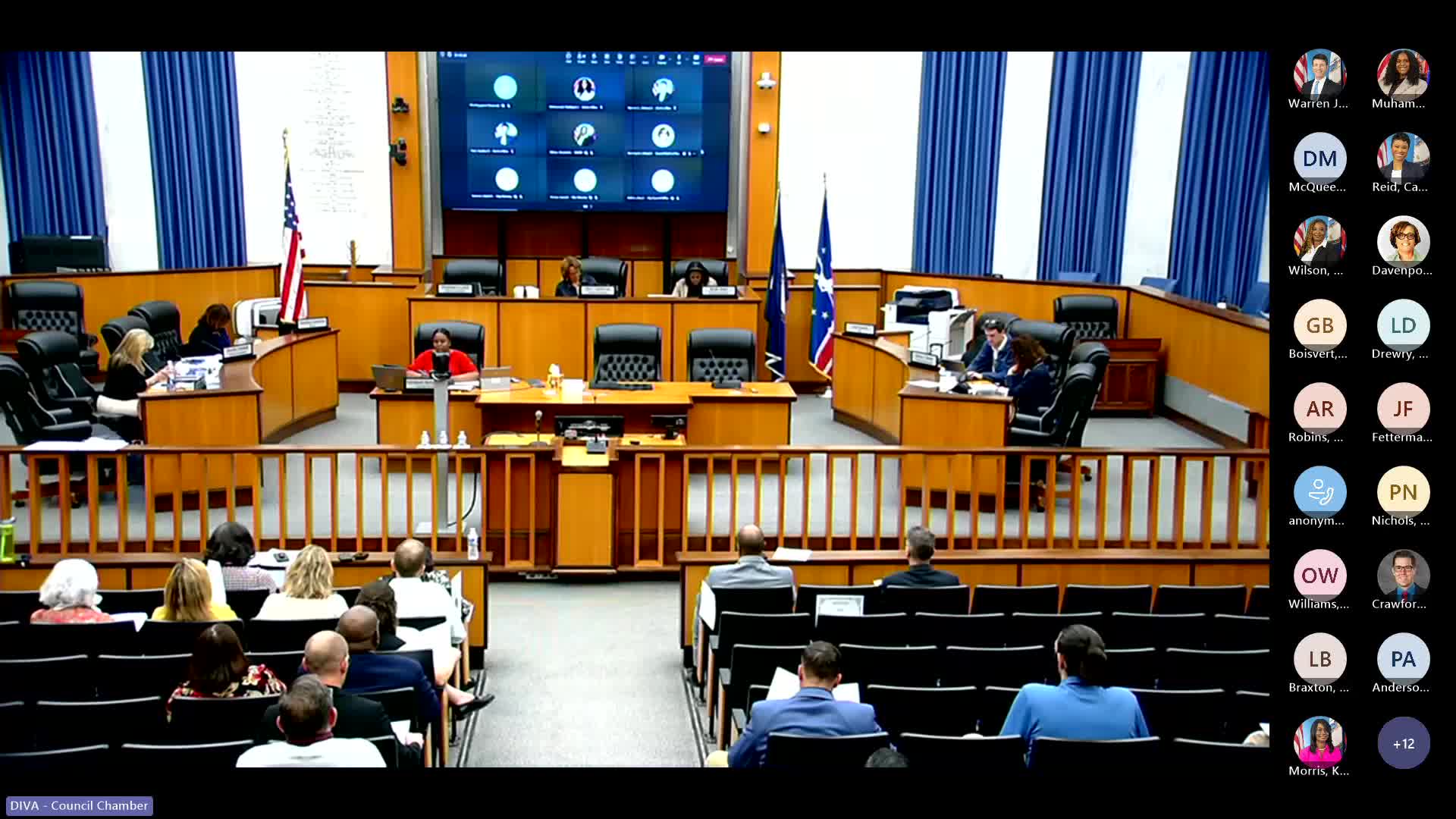Committee forwards $198,380 Caritas training grant and four peer-recovery subgrants to council
Get AI-powered insights, summaries, and transcripts
Subscribe
Summary
The Finance and Economic Development Standing Committee voted to forward an ordinance authorizing a Caritas grant of $198,380 and a block of four related peer recovery grants to the full City Council, all funded from opioid settlement dollars and intended to expand peer recovery services across Richmond.
The Finance and Economic Development Standing Committee on April 28 voted to forward an ordinance authorizing the city to contract with Caritas for a $198,380 grant to create a peer recovery specialist training program and separately forwarded four related peer-recovery subgrants to council with a recommendation to approve.
The measures are intended to use money from the city's National Opioid Settlement Fund to support peer recovery specialists, nonclinical workers with lived experience who provide person-centered recovery support. "Peer recovery specialists provide substance use disorder and mental health nonclinical person centered, strengths based, wellness focused services, to support clients, in entering sustainable recovery," Mike Fotula, the city's opioid response coordinator, told the committee.
Why it matters: committee members and a public speaker highlighted both cost savings and life-saving potential. Fotula said evidence supports peers as an allowable use of opioid settlement funds and that prevention and treatment services can produce downstream savings in health care and criminal justice costs. "There is no greater connection than peer to peer services," Benjamin Carr, director of recovery services for Caritas and a certified peer recovery specialist, said during the public hearing, adding the Caritas academy aims to produce a minimum of 40 trained peers in the coming year.
Key details and funding: the ordinance for Caritas (ordinance 20250056) would authorize the chief administrative officer to execute the grant agreement for $198,380. Fotula said the city received a separate award of $250,000 from the Virginia Opioid Abatement Authority that was intended to be subgranted to local nonprofits; four additional ordinances (20250064, 20250065, 20250066, 20250067) would authorize grant agreements with McShin Foundation, St. Luke Legacy Center, Atlantic Outreach Group Inc., and Opportunity Alliance and Reentry to fund peer recovery services. Fotula said the funding source is the National Opioid Settlement Fund and that there is "no fiscal impact to the city" from the grant awards because the funds are distributed to the city through opioid settlements with manufacturers and distributors.
Committee action and public input: the committee held a public hearing on the Caritas paper; Benjamin Carr spoke in support. Vice Chair Jones moved to forward the Caritas ordinance to council with a recommendation to approve; the motion was seconded and approved on recorded "Aye" votes from Vice Chair Jones and Chair Robertson. The committee then read items 3 through 6 in a block, heard Fotula explain the competitive subgrant process and the intended use of peer specialists, and voted to forward the four additional ordinances to council with a recommendation to approve.
Implementation and scale: Fotula and Carr emphasized peer services as an evidence-based strategy to reduce fatal overdoses and connect people to treatment. Carr said the Caritas academy aims to train at least 40 peer specialists in the next year and to add a community engagement component the following year to place peers in outreach roles.
Next steps: the forwarded ordinances will be considered by the full City Council. The committee record shows the motions were forwarded with recommendations to approve; the council will consider the formal grant agreements and any contract signatures by the chief administrative officer.
